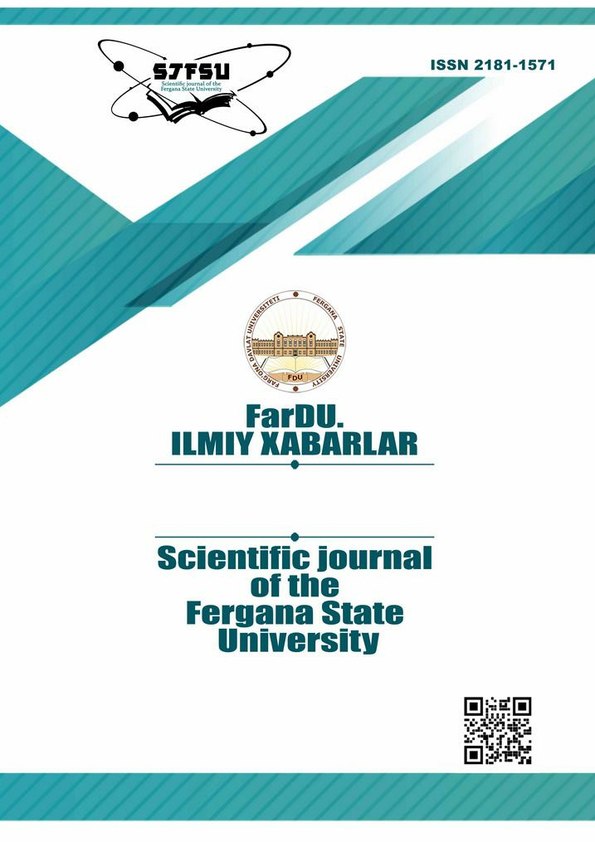LINGUISTIC FEATURES OF COMPUTER TERMINOLOGY IN ENGLISH AND UZBEK LANGUAGES
Main Article Content
Abstract
The article describes the linguistic research of computer and internet terms that are common in the current globalisation process. One of the peculiarities of computer and internet terminology is that they can be understood and used even among the general public. From this point of view, we have found that computer terminology, the etymology of computer terminology, the metaphorical characteristics should bring different aspects of its acceptance by terminologists and lexicographers. In the course of this study, the process of mastering English terms in the terminology of the Uzbek language, their origin were analyzed.
Article Details

This work is licensed under a Creative Commons Attribution-NonCommercial-NoDerivatives 4.0 International License.
References
Bakhtin M.M. Collected works in 7 t. T.5. Working 1940s – early 1960s // ed:S.G. Bocharov, L. A. Gogotishvili, Institute of world lit. – M., 1997.
Tolkinova, I. S. (2022). SEMANTIC FEATURES OF MODERN TERMINOLOGY. Eurasian Journal of Academic Research, 2 (2), 78-84.
Juan Sager: A Practical Course in Terminology Processing, (Amsterdam/Philadelphia: John Benjamins) 1990.
Khurshid Ahmad: "Neologisms, Nonces and Word Formation", in: Euralex 2000 Proceedings.
Heribert Picht and Jennifer Draskau: Terminology: An Introduction, (Guildford: University of Surrey) 1985.
George Lakoff and Mark Johnson: Metaphors We Live By, (Chicago: University of Chicago Press) 1980.
Frank Knowles: "Lexicographical Aspects of Health Metaphor in Financial Text", in: Martin Gellerstam et al. (Eds): Euralex ’96 Proceedings, Part II (Göteborg: Göteborg University Department of Swedish) 1996: 789-796.
Ingrid Meyer, Kristen Mackintosh and Krista Varantola: "The Reality of virtual: On the Lexical Implications of Becoming a Knowledge Society", in: Lexicology Vol. 3/1: 129-163.
Juan Sager: "Term Formation", in: Sue Ellen Wright and Gerhard Budin (Eds): Handbook of Terminology Management, Vol. 1, (Amsterdam/Philadelphia: John Benjamins) 1997: 25-41.
Hashimova, N., & Sattorov, T. (2021). USAGE OF ENGLISH MILITARY TERMINOLOGIES AS A NEUTRAL AND COLLOQUIAL VOCABULARY. CURRENT RESEARCH JOURNAL OF PHILOLOGICAL SCIENCES (2767-3758), 2(11), 162-167.
John Ayto: 20th Century Words, (Oxford: Oxford University Press) 1999.
ugli Mirzaev, A. B. IMPROVING EFL/ESL CLASSROOMS THROUGH USING ONLINE PLATFORMS: NEARPOD–AS AN EXAMPLE OF TOP-RATED ONLINE EDUCATIONAL PLATFORMS.
Gafurova, N. I. (2021). Structural-semantical classification of construction terms in English and Uzbek languages. ACADEMICIA: An International Multidisciplinary Research Journal, 11(5), 571-575.
Kuchkarova, Z. (2021). COMPARATIVE STUDY OF PHRASEOLOGICAL UNITS VERBALIZING THE CONCEPT OF" WEDDING" IN THE ENGLISH AND UZBEK LANGUAGES. Журнал иностранных языков и лингвистики, 2(2).

